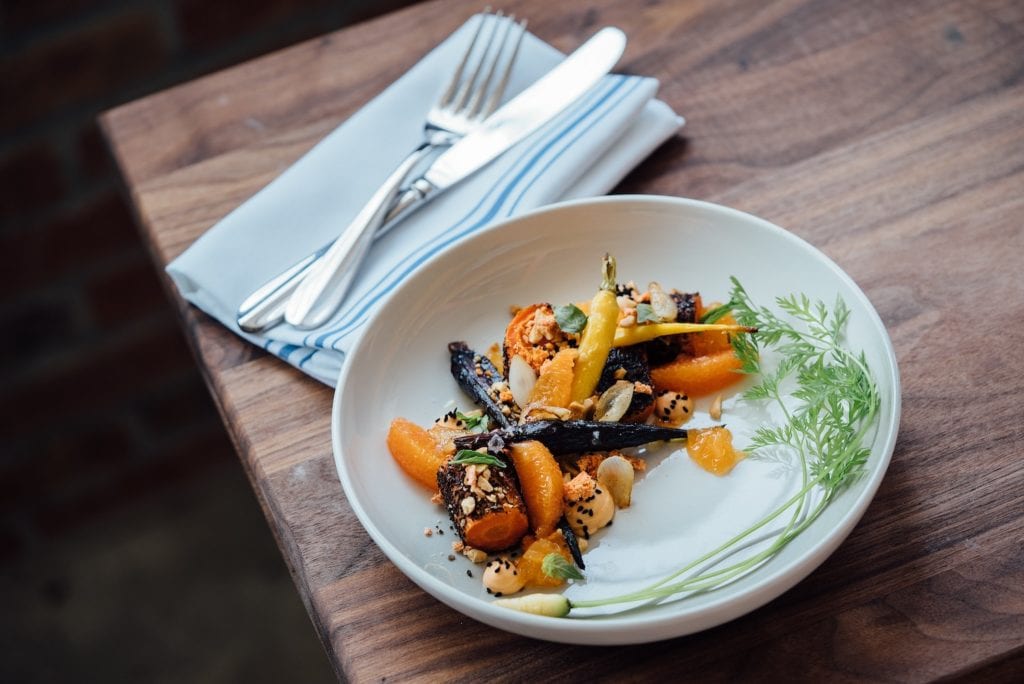It’s one of the most popular New Year’s resolutions to make: lose weight. Usually, that involves a mix of crash dieting and fanatic exercise routines that rarely make it to February—don’t forget that it’s a new ‘year’ resolution, and you actually have 12 months to integrate these new habits into your lifestyle. To understand what makes a diet and weight loss sustainable, we spoke to dietician Michelle Lau, founder of Nutrilicious, about the diets to avoid and how to make meaningful and lasting changes to your diet.

It’s been said that 95-98% of diets don’t work: why is that? Diets often don’t work because the idea of a diet is skewed. In general, a dieters’ concept of a diet is usually based on the idea of reduction. For example, cutting calories or an entire food group, or specific eating frequency and timings. Many diets, especially fad diets, are very restrictive which is hard to adhere to and not sustainable for the long term. Dieters tend to “lose control” as the idea of deprivation, which is ingrained in many diets, usually only gives them control over a diet situation in the short term.
When people are losing weight, its been suggested that losing anything from as little as 3% to 10% of your body fat can slow your metabolism, which is what makes people sometimes plateau or gain the weight back. Is there any way to avoid plateauing? More research is necessary to determine why weight loss plateaus occur. There are a few ways I suggest people overcome weight loss plateau: exercise helps people maintain and lose weight as well as building muscle, which can improve metabolism. Getting enough sleep and reducing stress levels can also help a person overcome a weight loss plateau.
See also: 9 Effective Luxury Weight Loss Retreats To Help Meet Your Goals
There’s a lot of different diets out there: Zone, Atkins, Keto, Paleo, Volumetrics, Raw Food, Bulletproof. If any, which are more successful? All of the above-mentioned diets are what we call fad diets. There is no food or diet that can magically burn fat, no superfood that will alter your genetic code, no food products that will miraculously melt away fat while you sleep.
How do you know which diet is good for you/are there body markers or tests that let you know if there’s a diet you are better suited to? What’s the best way to establish your personal carb-protein-fat diet ratio? The best body markers or tests are blood sugar, insulin, triglycerides and gut bacteria. The best carb-protein-fat ratio is one that you can stick to and can be adjusted according to how your body responds to it. Customise the ratio based on your preferences, health conditions and weight goals. Some people may find they’re less hungry on a high-fat, low-carb diet, and that it’s easier to follow compared to a low-fat, high-carb diet. My recommendation (based on health authorities) for healthy individuals: 45–65% of calories from carbohydrates, 20–35% of calories from fat, 10–35% of calories from protein
See also: The Biggest Obstacles Hindering Your Fat Loss Goals
What makes a diet sustainable? Make small but sustainable changes, stay away from anything extreme, and small changes built up over a longer period of time are more likely to land you on the same diet you wanted in the first place, but in a healthful way. Instead of jumping on the Paleo diet, simply cut out all the processed and packaged snacks and replace them with sliced apples and cherry tomatoes. Instead of launching into a full-on vegan diet, start by eating one full bowl of veggies at every lunch, or dinner, or both, at least a few days a week at first. It doesn’t mean becoming a vegan isn’t possible; but the slower the change, the more likely that it will last.
In lieu of adopting one of the faddy and restrictive diets that are trending, what nutrition habits could people easily add to their lifestyle for weight loss or maintenance? No matter what your diet style is, you can gain more health benefits by filling up your plate with at least three-fourths plant foods, such as beans, lentils, whole grains, like quinoa, brown rice; fresh vegetables and fruits. Plus, this diet pattern is better for the planet, too.
Michelle Lau is the founder and Principal Dietitian (MSc) of Nutrilicious, nutrition consultancy and communications company, aspires to inspire millions of people across Asia to living a healthier and happier life. Find her on Facebook and Instagram.



